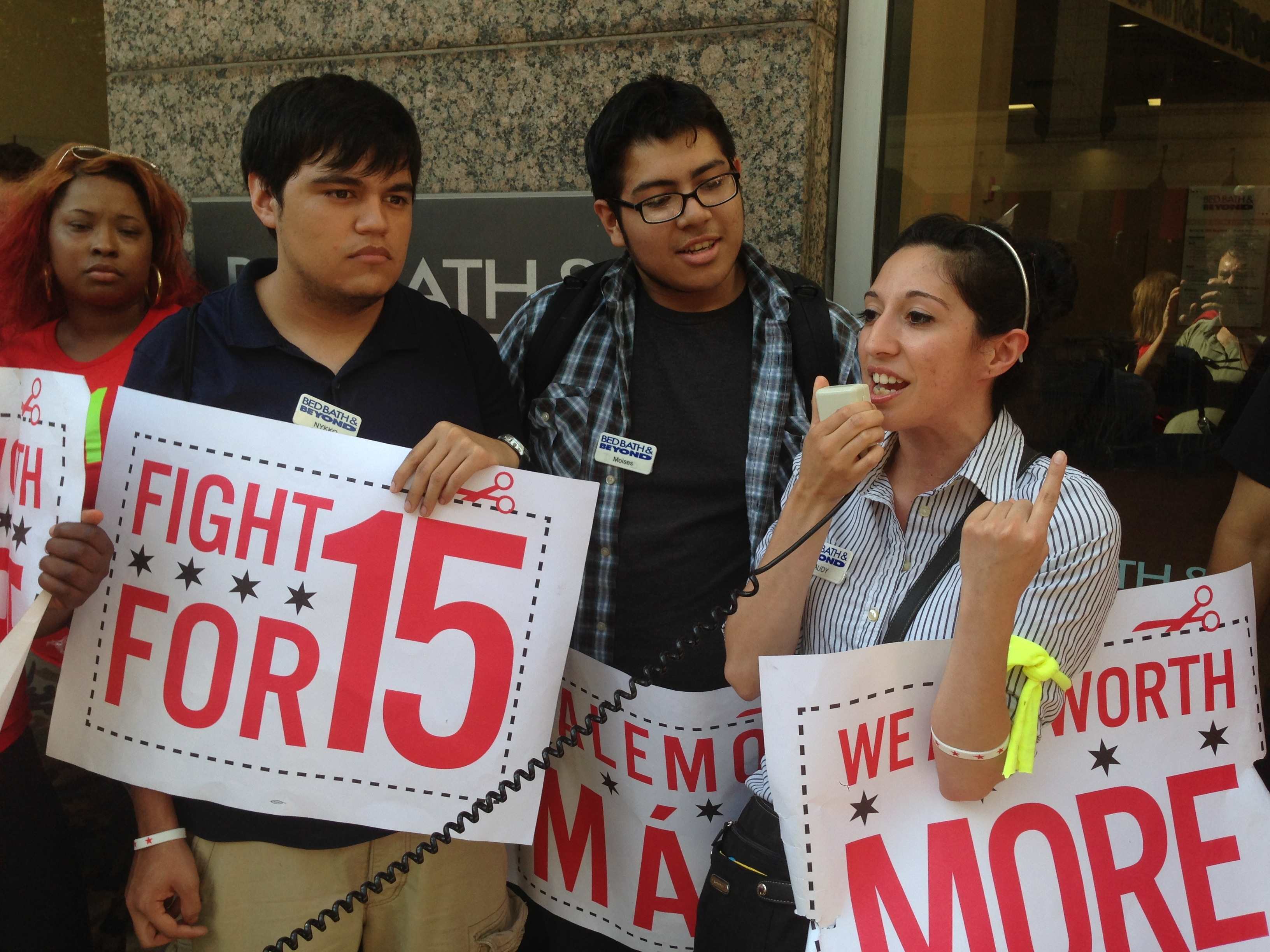The greatest positive force in a market economy is competition. However, when the government interferes with fair market operations, positive outcomes become distorted. When federal or state governments raise the minimum wage, jobs are destroyed, and many minorities and unskilled workers are removed from the job market.
To my skeptics and adversaries: This is not an opinion. This is a deep-rooted pillar of modern economic philosophy.
Last week, thousands of fast food workers across 230 cities in America openly protested for a minimum wage raise to $15 an hour under the banner #FightFor15.
The issue of minimum wage has become a primary bone of contention for the progressive left. They believe that by raising the minimum wage, they are directly helping the poor who desperately need that money to “live comfortably.” The irony of the situation, however, is that the progressive Left is doing nothing of the kind. In fact, raising the minimum wage will bring about a whole host of negative and unintended consequences for the very people the do-gooder Left is trying to help.
The minimum wage law can best be described as follows: Businesses must discriminate against people with low skills. That’s honestly how the law is interpreted. If I want to employ an individual with a skillset that justifies a $5/hr. wage, I legally cannot do that because that individual must be paid $7.25—the current minimum wage rate. If I do decide to hire this individual, I must engage in charity. Nothing is wrong with charity, but many employers are not in the position to engage in this kind of charity. As a result, this individual with a low skillset will be unemployed.
In response to the supporters of the $15 minimum wage, The Blaze recently published an exceptionally appropriate letter detailing the absurdity of the argument. How can a logical person feel entitled to a $29,000 annual salary for doing a job that requires “no skill, no expertise, and no education?”
To put this in a greater perspective, a $15 minimum wage would place fast food workers on the same pay scale as dental assistants, emergency medical technicians, auto mechanics, geologists, bank tellers, teachers and even some police officers. These jobs require years of education and training and are undeniably more complicated than refilling a soda fountain or serving a frosty. As the Blaze correctly pointed out in their letter, fast food jobs are menial, mindless and fundamentally worth very little to society. These jobs are not intended to be career paths, and people who believe otherwise are delusional.
For purposes of our discussion, however, let’s assume that the minimum wage does increase. What happens next?
Over the last decade, Congressional Democrats have proposed several bills to increase the minimum wage with the most prominent one being the Fair Minimum Wage Act of 2013. Although Senate Republicans blocked this bill early last year, the idea of a $10.10 minimum wage has gained increasing momentum from both sides of the aisle in recent months.
At the same time the drafting of the Fair Minimum Wage Act began, Amazon.com purchased the Kiva automated sorting system for $775 million. This was not a coincidence. By unveiling its new automated warehouse robots, the $157 billion company immediately sliced its operating costs by 20 percent. The exact same response will occur with the fast food industry.
We have witnessed sluggish employment growth for the last 10-15 years, but the most troubling statistic of all is that in 2000, job growth suddenly decelerated, but productivity remained robust. The reason for this decoupling between job growth and productivity is primarily due to the unrelenting rise of artificial intelligence and automation.
If the minimum wage is increased, companies like San Francisco-based Momentum Machines will see an immediate rise in demand for its flagship product—a fully automated robot that can grind meat, slice tomatoes, grill patties, and wrap burgers. The apparatus is able to produce over 360 burgers per minute.
“Our device isn’t meant to make employees more efficient,” says Momentum Machines co-founder, Alexandros Vardakostas, “It’s meant to completely obviate them.”
Kiosk touchscreens are replacing cashiers, tablets are replacing servers, and fully automated robots are replacing fry-cooks. These are the consequences of a higher minimum wage.
The debate is a matter of simple economics — when you tax something, you get less of it. Obviously, ending poverty and providing people with additional income are praiseworthy goals. But remember, there are no free lunches in this world.










